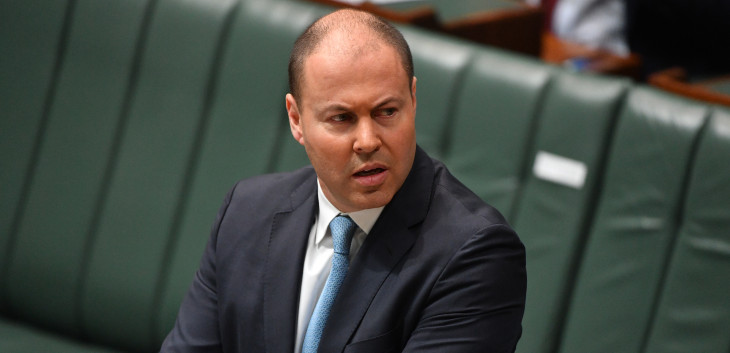
Treasurer Josh Frydenberg. Source: AAP Image/Mick Tsikas.
The Australian Taxation Office (ATO) has updated its JobKeeper guidance to reflect changes to eligibility tests announced by Treasurer Josh Frydenberg earlier this month.
For workers brought into JobKeeper under the new July 1 eligibility test, employers will have until the end of the month (August 31) to satisfy the wage condition — that is, pay those workers — for the fortnights commencing on August 3 and August 17 respectively.
The ATO has published advice for businesses working out which of their employees is eligible for JobKeeper 2.0 under the policy changes, effectively making way for workers hired after March 1 to be brought into the program.
These workers will only be allowed to start receiving payments from the pay period starting on August 3, including staff that are still stood down or have been re-hired.
As per the Treasurer’s previous announcement, casual employees will only be eligible for JobKeeper 2.0 if they had worked on a regular and systemic basis during the 12 months ending July 1.
The ATO has also released some guidance about determining what constitutes a casual worker for the purposes of JobKeeper 2.0.
“A casual employee is likely to have been employed during the relevant 12 month period on a regular and systematic basis if they had a recurring work schedule or maintained a reasonable expectation of ongoing work,” the ATO said in a recent content update.
“While a pattern or roster of hours may be a strong indication of regular and systematic employment, it is not necessary to have worked the same days and hours over each pay period. For example, due to the effects of the coronavirus on employment, an individual may have worked fewer shifts in the months of March to June 2020.”
Earlier this month Frydenberg outlined a range of tweaks to eligibility for JobKeeper 2.0 in light of stage four restrictions being imposed across Melbourne.
These changes will see the government expand spending on the wage subsidy program by an estimated $15.6 billion.
Legislation giving effect to JobKeeper 2.0, which will run through to March next year in some form, has yet to be tabled in Parliament.


COMMENTS
SmartCompany is committed to hosting lively discussions. Help us keep the conversation useful, interesting and welcoming. We aim to publish comments quickly in the interest of promoting robust conversation, but we’re a small team and we deploy filters to protect against legal risk. Occasionally your comment may be held up while it is being reviewed, but we’re working as fast as we can to keep the conversation rolling.
The SmartCompany comment section is members-only content. Please subscribe to leave a comment.
The SmartCompany comment section is members-only content. Please login to leave a comment.